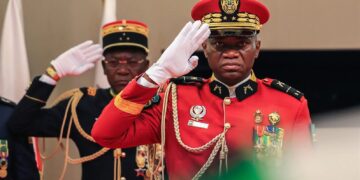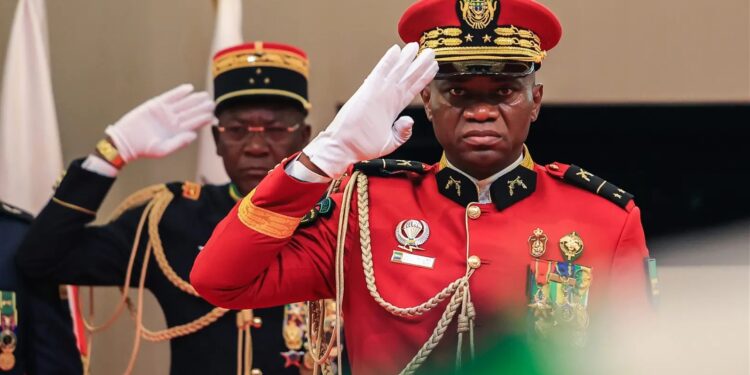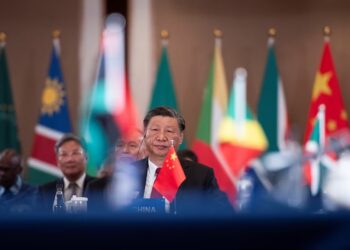Gabon’s transitional president, General Brice Oligui Nguema, formally entered civilian politics Saturday with the launch of his Democratic Union of Builders party, marking a symbolic shift from the military coup that brought him to power last year. The move comes just months after his landslide electoral victory in April, where he secured nearly 95 percent of votes in a controversial election that followed his ouster of longtime leader Ali Bongo.
Speaking before thousands of supporters at the party’s inaugural congress in Libreville, including notable defectors from the former ruling Gabonese Democratic Party, Nguema positioned the Democratic Union of Builders as a vehicle for national renewal. “For 50 years, leaders were tools of their political party. I refuse to create a machine that manipulates elections,” declared the former general, promising internal primaries to select candidates rather than top-down appointments.
The party’s platform of Inclusion, Development, Happiness aims to capitalize on public fatigue with the Bongo dynasty’s 56-year rule, which critics say was marked by corruption and stagnant living standards despite Gabon’s oil wealth. Yet Nguema’s consolidation of power, first through the August 2023 coup and then via an election opposition groups called illegitimate, has raised concerns about whether his administration represents genuine change.
Analysts note the Democratic Union of Builders’ rapid absorption of former Gabonese Democratic Party stalwarts suggests continuity as much as reform. “This looks less like revolution than rebranding,” said Libreville-based political researcher Marc Ona Essangui. “The test will be whether Oligui allows competitive politics or simply recreates a one-party system with new faces.”
The launch coincides with Gabon’s suspension from the African Union and ongoing negotiations with international partners seeking a return to constitutional order. While Nguema has pledged elections for legislative bodies in 2025, his new party’s dominance could shape Gabon’s political landscape for years, determining whether his rebuilding rhetoric translates to substantive democratic change.



































